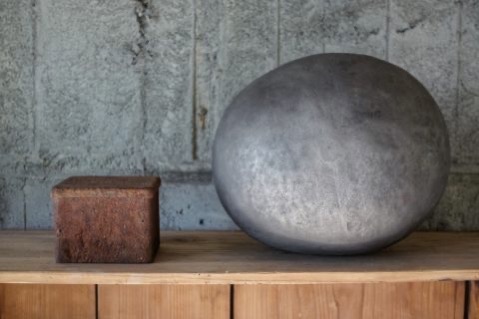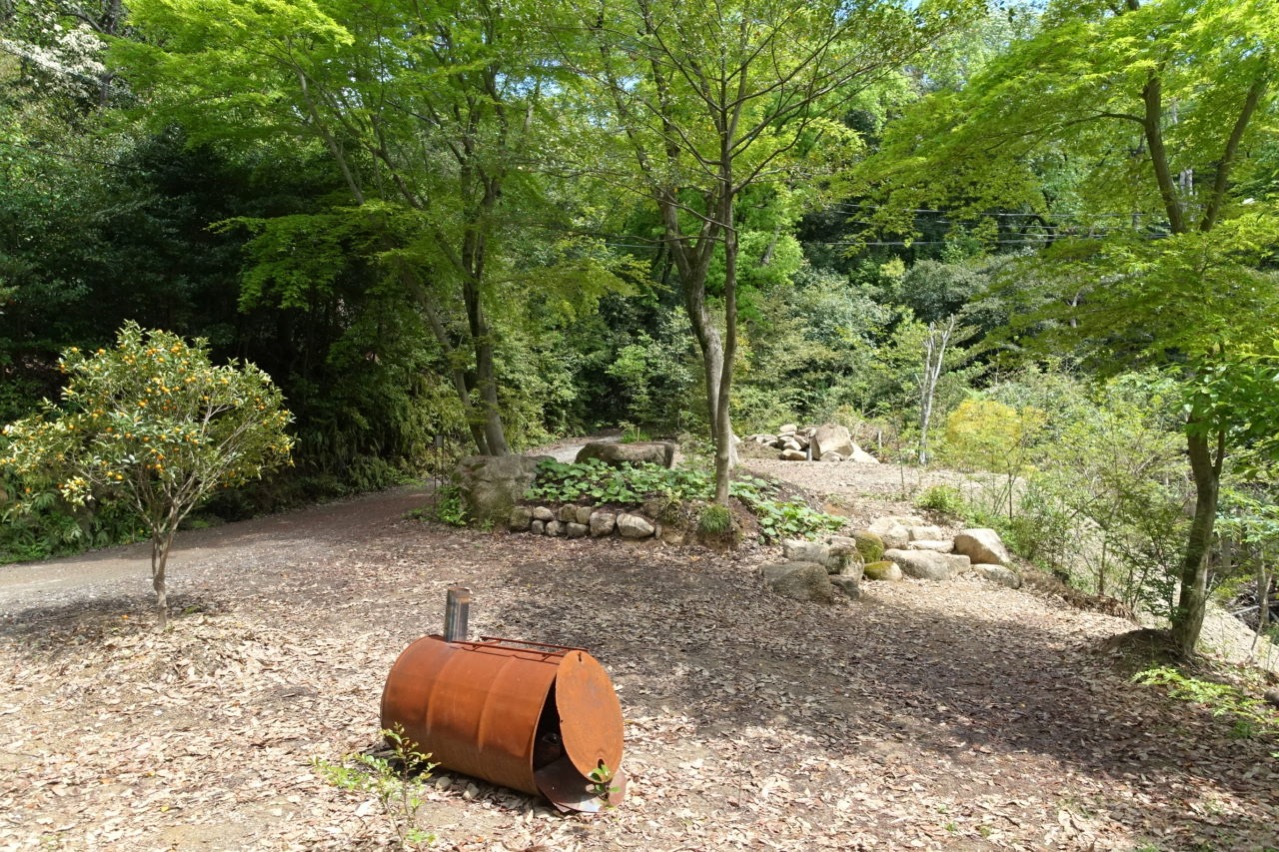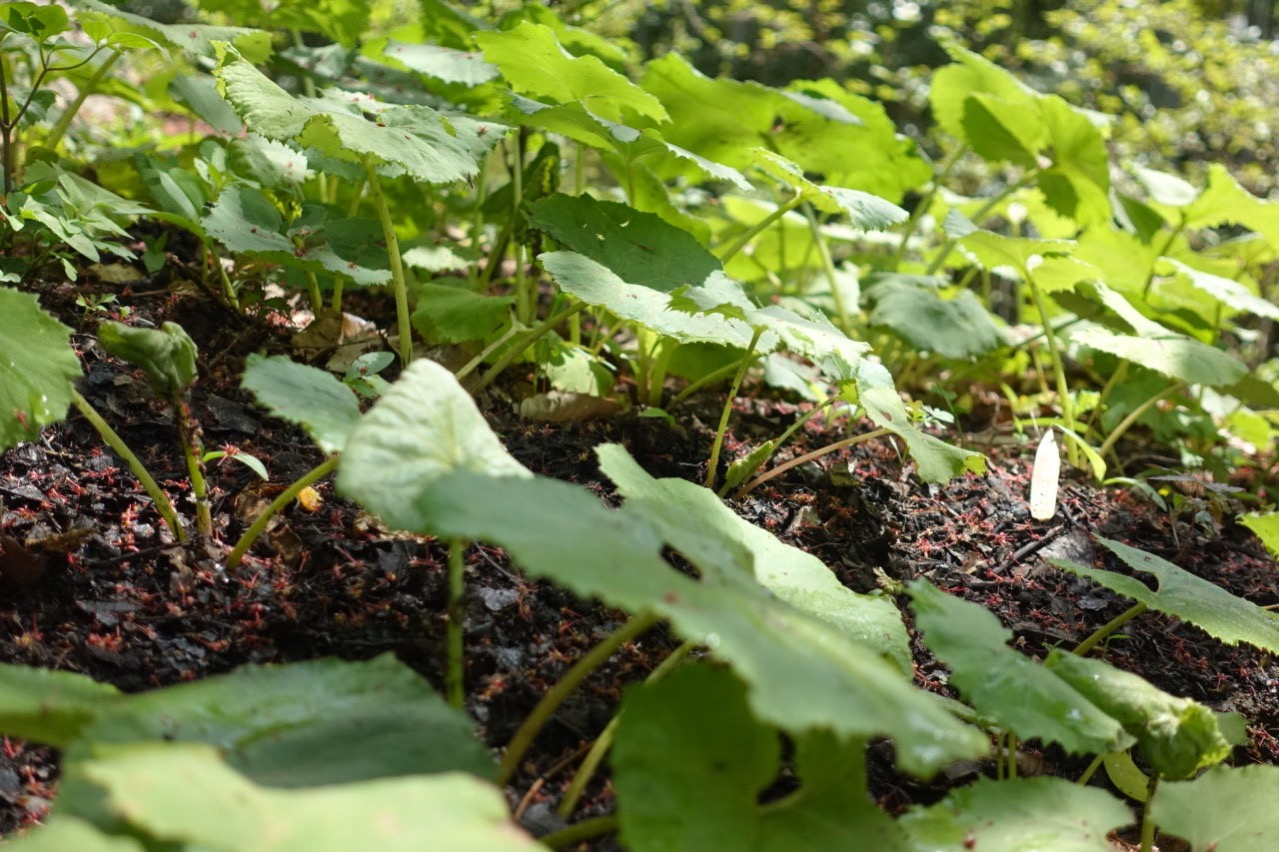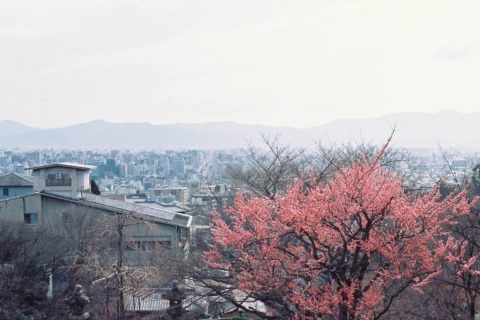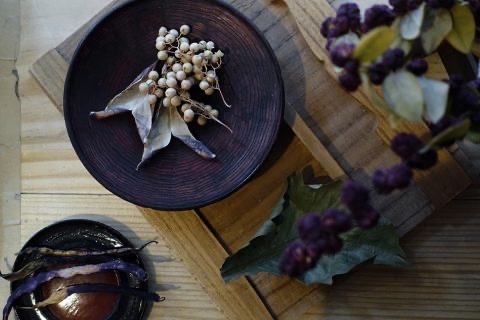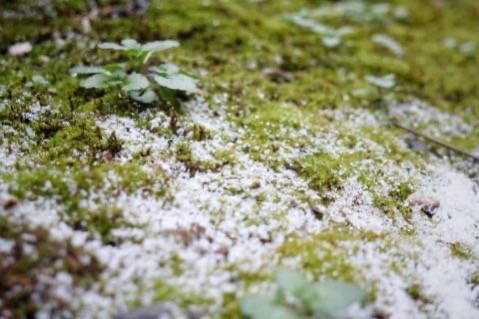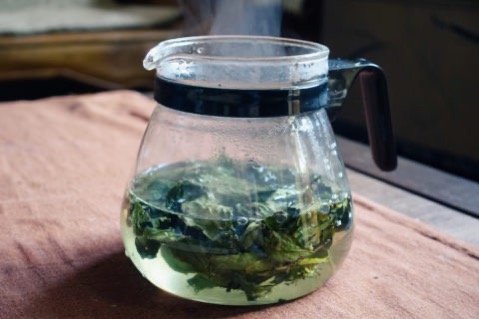冬末,移植植物的上佳時節,我們決定在山中新家庭園的楓樹下種下一百株蜂斗菜。日本家庭常以蜂斗菜的花入饌,炸成天婦羅,味甘而微苦,是長大了才懂得的春季美味。如果一百株蜂斗菜都順利落地生根,一年後的春天,就能辨一桌蜂斗菜盛宴,抱著這美好的想像,我滿心歡喜地翻著泥土。
落根後的兩個多星期都是艷陽天,天氣仍冷,陽光卻猛烈。蜂斗菜剛落根時尤其愄乾,大太陽下,一天沒澆水,便垂頭喪氣。新家還沒接上自來水,附近的小溪在冬季時也乾涸,得待夏季才湧出水來,於是我只好每天自家裡載著近百公升的自來水到山中,用澆水器一壼一壼地給蜂斗菜緩緩地灑水。蜂斗菜喝飽水後,稍為回復了精神,沾了水的葉片也變得翠綠亮麗。那段日子,剛巧家裡發生了點不如意事,情緒一直不穩,但看著自泥土探頭出來的蜂斗菜新芽,心情安穩了不少,加上手臂因為勞動而練出肌肉來,更覺得種植是療癒身體與心靈的最好方法。
In the garden of our new home in the mountain, we have a beautiful maple tree. The end of winter is the best time for transplanting, so we decided to plant 100 butterburs around the maple tree. Butterburs can often be seen in Japanese family meals, people would make tempura with this vegetable that has a distinctive bittersweetness that I did not know how to appreciate when I was younger. But now, this taste is what I look forward to whenever spring comes. If the 100 butterburs we planted can grow healthily, then we will be welcoming a sumptuous feast of butterburs next spring. This made me so happy even when I was just plowing the soil.
Following the planting was more than two weeks of chilly yet sunny days. The newly planted butterburs already appeared withered one day without being watered. However, since we had only moved recently, running water was not yet working. The stream nearby would also stay dry until summer arrives. So I had to carry almost a hundred liter of water to the mountain every day to water all my butterburs. They instantly turned very lively once hydrated, water drops landing on the leaves made them extraordinarily green and pretty. During that period of time, I had quite a bad time because of something that happened to my family, but the budding butterburs managed to cheer me up. Not only did they give me emotional strength but also helped with my physical strength — muscles on my arms were greatly strengthened because of the hard work. All of a sudden, I realized farming is the best way to cure our body and soul.
連續多天的勞動,開始感到疲累,老天像在提示我必須休息,總算下大雨了。聽說以往
日本的天氣報告,會將下雨天說成「壞天氣」,後來人們認為,雨水其實是自然界予萬物的惠澤,雨天對農夫來說也算是喜訊,於是棄掉這說法。坐在窗前凝看著烏雲,聽著綿密的雨聲,我深深感受到自己被大自然眷顧。
翌日雨過天晴,又到山上去,赫見蜂斗菜精神奕奕,原來小巧的薪芽都狀大了。才不過一場雨,灑來的微生物與養分,竟然就為因遷家而感水土不服的蜂斗菜注入了無盡的生命力。人類費盡力氣與精神,都不及大自然一下輕拂,想到這裡,突然覺得,自己再巨大的喜與悲,都何等微不足道。
After working in the garden for a couple of days, I began to feel tired. As if hearing the signal of my body, it began to rain heavily. So I got the chance to take a rest. I heard that Japanese weather report in the old days often mentioned rainy days as bad weather, but as time goes by, people got to understand that rain is the gift from nature. After understanding rain is good news to farmers, people finally stopped seeing rainy days as bad. Sitting behind the window, looking at the rain cloud and listening to the rain pouring down, I could vividly feel how powerful the love of nature is.
The sun came out after the rainy day. I returned to the mountain to see my butterburs. They all looked so healthy, the new buds had already grown a lot. It was only a day of rain, but the butterburs that were still recovering from being replanted had already gained enough energy and nutrients to appear so energized. No matter how hard human try, we can never be as mighty as nature. All of these just reminded me every bit of the joy and sorrow I experienced is basically nothing when compared to the grandeur of nature.
